#Alexandr Pushkin
Text
saw a tweet once that said "being poc fan of classical literature is having to battle with the fact that most of your favourite authors would probably have hated you for the mere fact of your existance". I thought back then that it would have been disrespectful to derail their thought, so here I go, making my own damn post:
Being a ukrainian fan of russian classical literature is knowing for sure that 99,9% of your favourite authors would have hated you for your existance as a ukrainian, because they deliberately went out of their way to let it be known; and most of them would've been happy to contribute to your annihilation personally
#ukraine#russia#russian culture#russian literature#fyodor dostaevsky#alexandr pushkin#michael lermontov#michael bulghakov#alexandr solzhenitsyn#honestly i could go on for the rest of the day
263 notes
·
View notes
Text
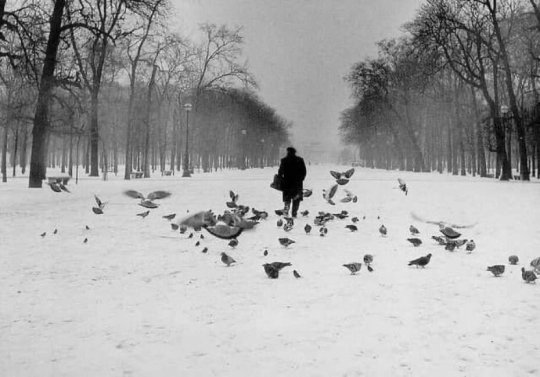
Robert Doisneau
* * * *
‘The illusion which exalts us is dearer to us than ten thousand truths.’ Anton Chekhov
Gooseberries, 1898 (citing Alexandr Pushkin)
[Ina de Bree]
8 notes
·
View notes
Text

Pyotr sees Marya for the first time [the captain's daughter, alexandr pushkin] sketch
10/06/2023
Bruh this book is being surprisingly easy to read and it's not what I expected from a 19th century book.
Btw, I'm having such a baaaaad time drawing his eyes so that it looks like he's looking at her and not at the north pole 😭
#art#digital art#digital illustration#digital painting#illustration#painting#sketch#digital sketch#alexandr pushkin#pushkin#the captain's daughter#russian literature#book art#book fanart#book fan art
17 notes
·
View notes
Text
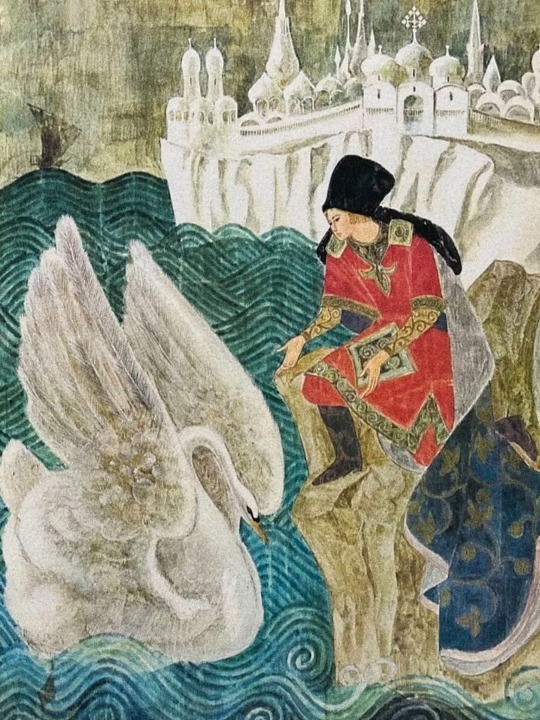
The Tale of Tsar Saltan by Alexander Pushkin
1966
Editions Fabbri
Artist : Benvenuti
#alexander pushkin#alexandre pouchkine#fairy tale#russian fairy tale#russian folklore#swan#white swan#children’s literature#benvenuti#tsar saltan#tzar saltan#1966
225 notes
·
View notes
Quote
‘Bold steeds I can tell by their something-or-other thighs, and young men in love by the look in their eyes,’ declaimed Stepan Arkadyich.
Leo Tolstoy, Anna Karenina
2 notes
·
View notes
Text
Tbilisi Thermal Sulfur Baths Georgia

View On WordPress
#Abanotubani District Tbilisi#Alexandre Dumas#Gulo’s Thermal Spa#Healing Properties of Sulfur Water#Health Benefits And Therapeutic Uses of Sulfur Baths#King Vakhtang Gorgasali#Kisi Glove Scrubbing#Russian Playwright Anton Chekhov#Russian Poet Alexander Pushkin#Sulfur Baths Tbilisi#Tbilisi Sulfur Baths#Tilework Sulfur Baths Abanotubani District
1 note
·
View note
Text

Alexandre Benois - Bronze Horseman. Design for a cover to Pushkin's poem (1905)
150 notes
·
View notes
Text
Remember when it was like a whole-ass trend to claim that Beethoven was black or Cleopatra was black?
I wonder why instead of lying, they didn't point out real historical figures of black descent that many people forget are of black descent?
Like the Russian poet Alexander Pushkin, who was Ethiopian on his grandfather's side.
Or Alexandre Dumas, the writer of Three Musketeers and The Count of Monte-Cristo, who was literally half-black.
86 notes
·
View notes
Text
Note :
You'll find a poll about earlier gothic works, another about 19th-ish century ones, one about 20th-ish century ones, one about Dickinson's poetry and one about Poe's works in my 'gothic lit' tag on this post. There's also a cat versus raven poll in my 'edgar allan poe' tag.
#polls#gothic lit#crime and punishment#notre dame de paris#the tenant of wildfell hall#the queen of spades#the turn of the screw#wagner the wehr-wolf#the vampyre#the pale lady#rappaccini's daughter#villette#if you vote for wagner please explain to me why
82 notes
·
View notes
Text
Books Read In 2023
Beowulf: A New Translation by Maria Dahvana Headley (1/3/23)
East by Edith Pattou (1/4/23)
Midnight on the Moon by Mary Pope Osbourn (1/16/23)
The Lady or The Tiger?, and The Discourager of Hesitancy by Frank R. Stockton (1/17/23)
The Yellow Wallpaper by Charlotte Perkins Gilman (1/21/23)
Goblin Market by Christina Rossetti (1/22/23)
Tiger Queen by Annie Sullivan (1/22/23)
The Lion, The Witch, and The Wardrobe by C. S. Lewis (1/26/23)
Batgirl, vol. 1: The Silent Knight (1/27/23)
Batgirl, vol. 2: To The Death (1/27/23)
Batgirl, vol. 3: Point Blank (1/28/23)
The Female of the Species by Rudyard Kipling (2/17/23)
Batgirl: Stephanie Brown, vol. 1 by Bryan Q. Miller (2/19/23)
Batgirl, Stephanie Brown, vol. 2 by Bryan Q. Miller (3/4/23)
Christmas in Noisy Village by Astrid Lindgren (3/4/23)
The Queen’s Blade by T C Southwell (3/5/23)
Sacrifice, The Queen’s Blade #2 by T C Southwell (3/9/23)
The Invisible Assassin, The Queen’s Blade #3 by T C Southwell (3/13/23)
Mermaids by Patty Dann (3/14/23) X
The Rubáiyát of Omar Khayyám translated by Edward FitzGerald (3/19/23)
The Mirror Visitor by Christelle Dabos (3/21/23) X
The Missing of Clairedelune by Christelle Dabos (3/22/23) X
I’m Glad My Mom Died by Jeannette McCurdy (3/24/23) X
Ronia, The Robber’s Daughter by Astrid Lindgren (3/27/23)
Kiki’s Delivery Service by Eiko Kadono (3/30/23)
Brine and Bone by Kate Stradling (4/10/23)
Green Arrow: Quiver by Kevin Smith (4/17/23) X
Eugene Onegin by Alexander Pushkin, translated by Stanley Mitchell (4/22/23)
When Patty Went to College by Jean Webster (4/23/23)
The Princess and The Pea by Hans Christian Anderson (4/23/23)
Deathmark by Kate Stradling (4/25/23)
Without Blood by Alessandro Baricco (5/5/23)
River Secrets by Shannon Hale (5/6/23)
The Fairy’s Return and Other Princess Tales by Gail Carson Levine (5/8/22)
Batman Adventures: Cat Got Your Tongue? by Steve Vance (5/14/23)
Batman Adventures: Batgirl — A League of Her Own by Paul Dini (5/17/23)
The Girl From The Other Side: Siúil a Rún, Vol. 1 by Nagabe (5/19/23)
Twenty Love Poems and a Song of Despair by Pablo Neruda. Translated by W. S. Merwin (5/26/23)
Other-Wordly: Words Both Strange and Lovely from Around the World by Yee-Lum Mak (6/21/23)
A Bride’s Story, vol. 1 by Kaoru Mori (6/25/23) X
La Dame aux Camélias by Alexandre Dumas fils (7/17/2023)
Storefront Church by William Waring Cuney (7/24/23)
Golden Slippers: An Anthology of Negro Poetry for Young Readers (1941), compiled by Arnas Bontemps (7/28/23)
Because of Winn-Dixie by Kate DiCamillo (7/29/23)
Strawberry’s New Friend (Flower Fairy Friends series) by Pippa Le Quesne (7/29/23)
Clementine by Sara Pennypacker (8/11/23)
The Whipping Boy by Sid Fleischman (8/18/23)
Convent Boarding School by Virginia Arville Kenny (9/05/23)
The Screwtape Letters by C. S. Lewis (09/18/23)
The Betsy Tacy Treasury by Maud Hart Lovelace (09/27/23)
Sarah, Plain and Tall by Patricia MacLachlan (09/27/23)
Skylark (Sarah, Plain and Tall #2) by Patricia MacLachlan (09/27/23)
Caleb’s Story (Sarah, Plain and Tall #3) by Patricia MacLachlan (09/27/23)
Maelyn by Anita Halle (10/06/23)
Imani All Mine by Connie Porter (10/15/23)
The Perilous Gard (10/22/23)
Enemy Brothers by Constance Savery (10/29/23)
Sadako and the 1000 Paper Cranes by Eleanor Coerr (11/19/23)
Gone By Nightfall by Dee Garretson (12/02/23)
The Dragon’s Promise by Elizabeth Lim (12/08/23)
A Lion to Guard Us by Clyde Robert Bulla (12/10/23)
The Thirteenth Princess by Diane Zahler (12/23/23)
The Hollow Kingdom by Clare B. Dunkle (12/26/23
The Wasteland by T. S. Eliot (12/31/23)
51 notes
·
View notes
Note
🌻
there is a conspiracy theory that alexander pushkin and alexandre dumas are actually the same person
2 notes
·
View notes
Note
Ooooh I would love to hear about your hypothetical curriculum for St. Petersburg!
In my mind, there are two other parallel versions of me that chose other fields of study. There's one who chose theology, and there's one who chose Russian lit.
So five-ish years ago, I read St. Petersburg: A Cultural History by Solomon Volkov. I absolutely adored it. As I read, I kept a running list of all the literature, music, and art that I wanted to look up and experience once I had finished the book. This turned into a sort of self-taught class on the literature of St. Petersburg, which continues to be one of my greatest fascinations. I read voraciously, listened to little but Petersburg opera for months (hit me up for Russian opera recs!), and when I read other Russian cultural histories, I kept similar lists and read even more. I've still got quite a lot of Russian classics on my to be read list, but this technique gave me a wonderful start, which led me in turn to create this hypothetical lit curriculum. I would love nothing more than to somehow share Petersburg's beautiful body of poetry, prose, and essay with others.
Note: this is probably a bit more than would fit in a standard undergrad semester, but I've already made substantial cuts from the original lists and can't bring myself to pare it down anymore. Suspend your disbelief, etc.
The Petersburg Mythos
Alexander Pushkin: The Bronze Horseman and The Queen of Spades
Mikhail Lomonosov: Masquerade
Nikolai Gogol: The Nevsky Prospect and The Overcoat
Fyodor Dostoyevsky: White Nights and Crime and Punishment. Maybe also The Adolescent if there's time; if not, I would at least include one particular excerpt from it.
Ivan Turgenev: Home of the Gentry
Leo Tolstoy: Anna Karenina
Yevgeny Zamyatin: “Moscow-Petersburg”
Essay: Using “Moscow-Petersburg” as a framework, examine the projected mythos of St. Petersburg in contrast to that of another major city in Europe, Asia, America, or even in fiction.
The Silver Age
Alexandre Benois: “Picturesque Petersburg”
Andrei Bely: Petersburg
Boris Pasternak: “February” “A Wedding” “My Sister, Life” “Hamlet”
Alexander Blok: “The Dances of Death” “The City Sleeps” “The Stranger”
Nikolay Gumilyov: “The Lost Tram” “The Sixth Sense”
Anna Akhmatova: "The Prayer"
Marina Tsvetayeva: “To Akhmatova”
Essay: While the influence of Golden Age literature on the Silver Age is clear, many have noted an air of dread and anticipation preceding the Bolshevik Revolution in their work is well. Was St. Petersburg of the Silver Age more past- or future-oriented? Defend your answer.
The Martyr City
Anna Akhmatova: Untitled poem on Gumilyov’s arrest
Osip Mandelstam: “Leningrad,” “Petropolis,” Untitled “Help me, O Lord…”
Yevgeny Zamyatin: The Cave
Konstantin Vaginov: The Goat Song
Yuri Tynyanov: The Death of Vazir-Mukhtar
Anna Akhmatova: “Requiem” and “Poem Without a Hero”
Mikhail Zoshchenko: Nervous People
Choose an emotional response to the suffering of the early Soviet Era, such as grief, alienation, fear, or hope, and analyze its presence in the literature of early to mid-century Leningrad.
Expatriates, Non-Russians, and the End of the Soviet Era
Vladimir Nabokov: Speak, Memory
Alexander Kushner: selections from We Cannot Choose Times…
Andy Croft: Epilogue to “Fellow Travellers”
Olga Berggolts: Untitled “We pronounced the simplest, poorest words…”
Vladamir Kornilov: “Freedom”
Essay: How does the writing of those who are alienated from St. Petersburg’s identity in some way differ from those who are immersed in it? (In order to answer this question, you will need to decide: What is St. Petersburg’s identity?)
#i think i'm gonna start migrating my Russia posts over to this blog#clearly this community has an interest#and i yearn to share this sort of thing with you all#i had a really tough time tracking down a lot of these poems and essays#back when i first read them#so if anyone has that same problem let me know and I can probably help#i have a stockpile#it's an absurdly long word document that probably ought to be a folder or something#i would sell body parts for a chance to visit St. Petersburg#russia where are you flying to?#literature makes us more human#ask me hard questions#really glad you asked for this one friend#sorry it took so long
55 notes
·
View notes
Text
youtube
"Diario de un loco" es una obra de Nikolái Gógol (1809-1852) en forma de monólogo. Ha sido llevada al teatro en distintas adaptaciones y cuenta, y no voy a revelar la trama, el descenso hacia la locura del protagonista con un tinte cómico. Algo que terminó por sucederle al propio autor ya que al final de sus días perdió el juicio. El vídeo lleva una breve introducción para orientarnos en la obra y vida de Nikolái Gógol un escritor que fue determinante junto a Alexandr Pushkin (1799-1837) para orientar y asentar la dirección que la literatura rusa tomaría con los escritores que vinieron después.
#Diario de un loco audiolibro#diario de un loco#diario de un loco gogol#diario de un loco nikolai gogol#nikolai gogol#gógol#Nicolai Gógol#Nikolai Gogol audiolibro#Nikolai gogol teatro#loco#obras nicolai gogol#novelas nikolai gógol#teatro nicolai gogol#teatro gógol#Diario de un loco teatro#diario de un loco obra#diario de un loco audiolibro#obra diario de un loco#literatura rusa#teatro ruso#gogol pushkin#novelas rusas#audiolibros rusos#diario del loco#audiolibros#cultura#literatura#libros#Youtube
3 notes
·
View notes
Text
Animali

A snow storm, 1891 ca. | William Edward Stott (1855-1918, England)

Cavallo bianco (white horse), 1634-1638 | Diego Velázquez (1599-1660, España)

L’amazzone (Alice Regnault), 1878 (Galleria d'Arte Moderna, Milano) | Giovanni Boldini (1842-1931, Italia)

Le comte Alphonse de Toulouse-Lautrec, 1883 (Mead Art Museum at Amherst College, Amherst) | Henri de Toulouse-Lautrec (1864-1901, France)

Die katze (the cat), 1901 | Hans Thoma (1839-1924, Germany)

The races at Longchamp, 1866 (Art Institute Chicago) | Édouard Manet (1832-1883, France)
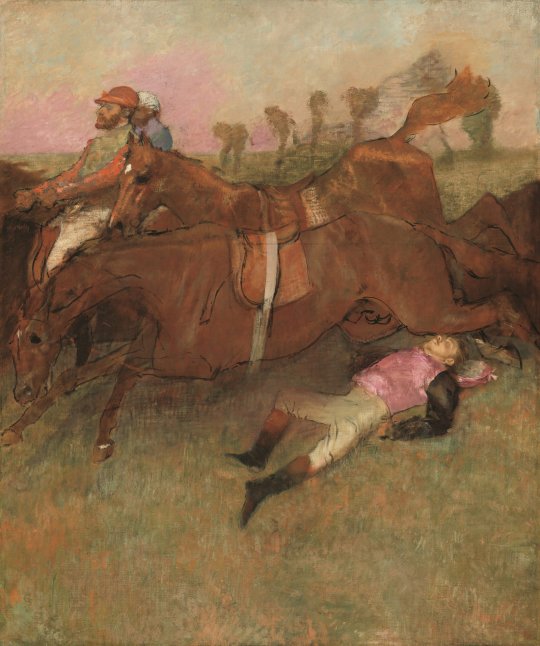
Course à obstacle; le jockey tombé (il fantino caduto), 1866 | Edgar Degas (1834-1917, France)

Pushkin in the village, 1899 | Valentin Serov (1865-1911, Russia)

Prospectus en russe pour la réouverture du cabaret Chat Noir, 1896 | Théophile Alexandre Steinlen (1859-1923, Switzerland)

Cocorico | Théophile Alexandre Steinlen (1859-1923, Switzerland)

Cortile in Banditella, 1895 ca. | Raffaello Gambogi (1874-1943, Italia)

Metzengerstein, 1884 - from Edgar Allan Poe's Tale | Hermann Vogel (1854-1921, Germany)
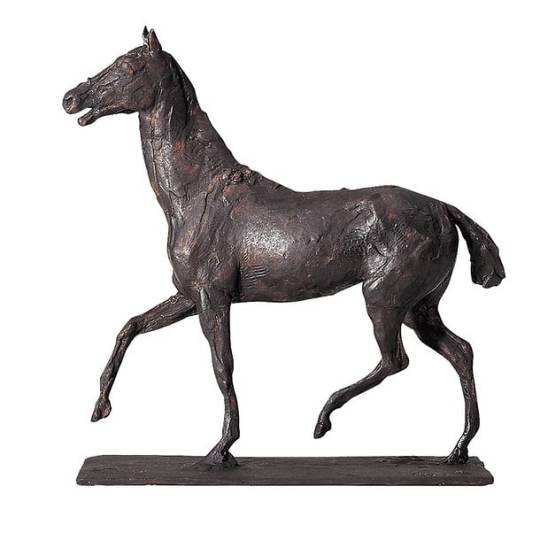
Cheval au pas | Edgar Degas (1834-1917, France)

Jokey | Henri de Toulouse-Lautrec (1864-1901, France)

La signorina Rita Tibolla, La signorina col cane (Lady with dog), 1904-05 | Giulio Ettore Erler (1876-1964, Italia)
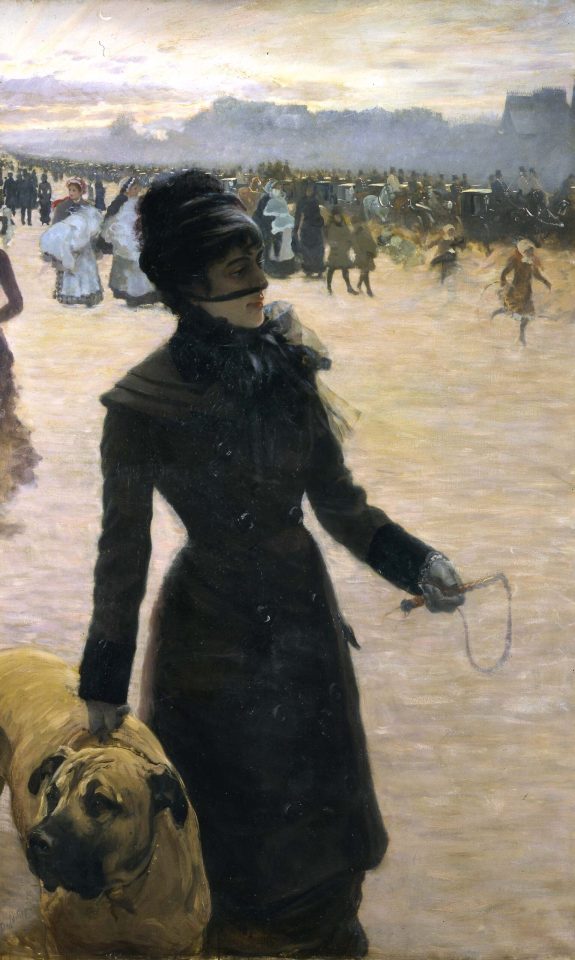
Signora con cane (Ritorno dalle corse) - Lady with dog (Return from racing), 1878 | Giuseppe De Nittis (1846-1884, Italia)

The Raven (Il Corvo), 1971 | David Inshaw (1943, England)

La Dama con l'ermellino, 1488-90 (Museo Czartoryski, Cracovia) | Leonardo da Vinci (1452-1519, Italia)

Elena di Montenegro (1873-1952, Montenegro), regina d'Italia (queen of Italy) | San Rossore, Tuscany, 1900 ca.

Il dromedario (The dromedary), 1870-75 | Giovanni Fattori (1825-1908, Italia)

Egon Schiele (1890-1918, Austria)
2 notes
·
View notes
Text
10 People You Probably Didn't Know Were Black | HowStuffWorks
Race is a social construct even though most of the world believes that race has everything to do with the colors or colours of someone's skin. Growing up in Memphis, Tennessee I spent most of my time in the library than I did anywhere else.
I read everything I could get my hands on and then one day my parents asked me what I wanted for my birthday? I said to go to the Library of Congress for the entire weekend and so I received my wish and from each month after that I would fly to Washington DC to get to the library of my dreams.
This is where I learned so much about Black Indigenous People history written by Black Authors from every field and profession. I never knew that so much of Black Indigenous People's history was kept as a secret. Betsy Coleman is probably one of my teen heroes whom I absolutely adored.
Richard Wright is probably my favorite author and poet. The book of the world's monarchs is the best book on Black Queens and Kings from around the world is absolutely amazing stories of great achievements in human history especially those who ruled Europe.
I took what I have learned and I taught our children and they are more amazed than I was growing up. They also learned that people who call themselves scholars didn't know anything about real history or science, especially if they called themselves white.
0 notes
